LG’s BX and CX OLED TVs come with many similar characteristics. That said, the BX comes at a more affordable price, while the CX offers better performance features in a few important areas. So, how big is this difference in performance and which TV is the better choice based on your needs and preferences? We’ve done a thorough LG BX vs CX comparison to help you decide which TV is the best option for you.
LG BX vs CX – Quick Comparison
LG BX
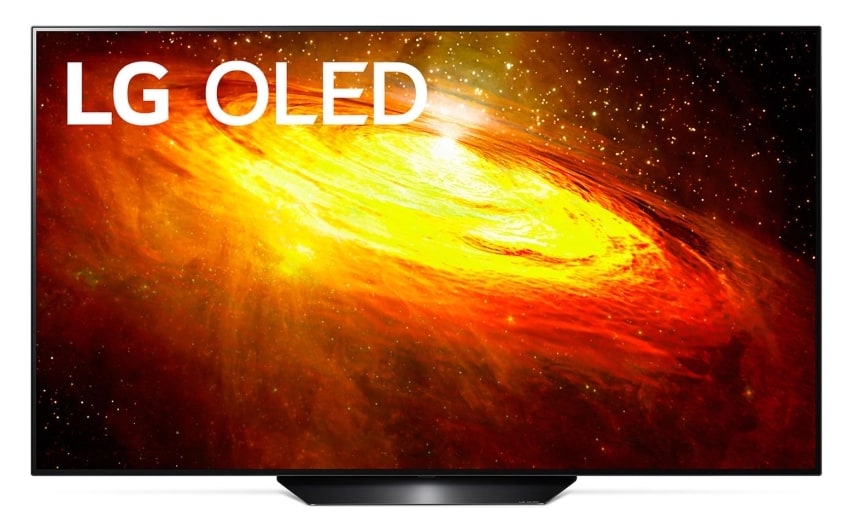
The LG BX is a marvelous TV that provides great features in its price range. Reasonably priced, the BX offers good all-around traits that make it an excellent choice for everyone looking for a TV suitable for varied usage.
Pros:
- Near-infinite contrast ratio
- VRR support
- Great price for an OLED TV of its capabilities
- Great for gaming and HDR gaming
Cons:
- Tends to stutter with lower frame rate content
- Sound is a bit disappointing at higher volumes
LG CX
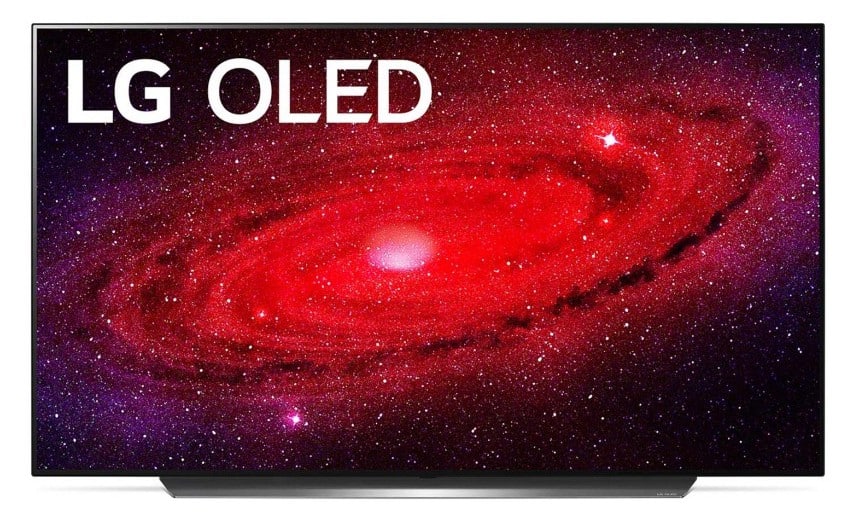
The LG CX represents everything good about LG TVs. Gorgeous on the outside and packed with great features on the inside, this TV improves on many key aspects to deliver a stunning product.
Pros:
- Near-infinite contrast ratio
- VRR support
- Competent image processor
- Good sound quality
Cons:
- Tends to stutter with lower frame rate content
- Relatively expensive
Features Face to Face
Panel Technology
The BX and CX use the same panel technology, LG’s OLED (Organic Light-Emitting Diode). OLED panels have a few distinct characteristics. Most notably, they don’t require any backlight and don’t come with a liquid crystal layer like conventional LCD TVs. The OLED display is self-emissive.
In simple terms, OLED displays produce light by organic molecules, as the display contains a series of thin organic films between two conductors. This allows OLED TVs to control the light on a pixel-by-pixel basis. As a result, OLED technology provides superior image quality with perfect color reproduction, great contrast ratios, and wide viewing angles.
Image Processor
Strong image processing capabilities are essential in TVs in this price range. The LG BX features the 3rd Generation α7 processor, an intelligent processor that recognizes the quality of the original content and optimizes the visuals by removing noise. In addition, it has AI brightness and AI sound capabilities, meaning that it tailors these features based on the TV’s environment.
The LG CX comes with a 3rd Generation α9 processor, which is even more potent than the α7. This processor utilizes a deep-learning algorithm to remove noise and optimize contrast and saturation. What’s more, it boasts upgraded face enhancing and upscaling technology. With all of this in mind, the CX has the advantage in terms of image processing power.
Motion Technology
The two TVs have incredible response times. That said, the CX has the edge in this category, as it offers a near-instantaneous response time. This model fully transitions between scenes in just 1.7 milliseconds. In comparison, the BX’s response time is a bit slower, as it measures 3.8 milliseconds.
Although the BX and the CX aren’t flicker-free, the flickers coincide with the refresh rates, so you won’t notice any dramatic dips in brightness. Still, the two TVs do suffer from a downside for having such fast response times. As they can switch between scenes so quickly, lower frame rate content will visibly stutter, as each frame is held on longer on the screen.
Picture Quality
Overall picture quality and supported resolutions are some of the major deciding factors for buyers when choosing a new TV. In this context, the good news is, both the BX and the CX support all common resolutions. The table below includes all of the supported resolutions for both models:
| Resolution | LG BX | LG CX |
|---|---|---|
| 4K/120Hz | Yes (Native Support) | Yes (Native Support) |
| 4K/60Hz/4:4:4 | Yes | Yes |
| 4K/60Hz | Yes | Yes |
| 1440p/120Hz | Yes (Native Support) | Yes (Native Support) |
| 1440p/60Hz | Yes (Forced Resolution Required) | Yes (Forced Resolution Required) |
| 1080p/120Hz | Yes (Native Support) | Yes (Native Support) |
| 1080p/60Hz/4:4:4 | Yes | Yes |
We should also highlight a few additional things you need to know when choosing between the two. The CX only displays 4K at 120Hz in Game Mode. If you watch it outside this mode, you’ll likely experience skipping frames and other picture issues. Additionally, both TVs only run 1080p at 120Hz in PC Mode.
Contrast Ratio / Black Level
Like all OLED LG TVs, the BX and the CX have a near-infinite contrast ratio. These two TVs can turn off individual pixels, resulting in perfect contrast ratios. In line with that, the black uniformity is also near perfect. The BX has slightly better black uniformity, although both TVs are outstanding in this aspect.
Local Dimming
As we’ve discussed above, the BX and CX don’t have a backlight due to the nature of OLED panels. Because of this, neither TV has a local dimming feature. Instead, they dim pixels individually with no visible blooming. This results in perfect display of bright objects and subtitles.
Peak Brightness
Most OLED TVs offer average to above-average peak brightness performance. In the BX and the CX, these two TVs definitely fall into the former category. That said, the CX has a slight edge, particularly if we focus on HDR brightness performance.
Going by the numbers, in a peak 2% brightness window, the CX records around 760 nits, while the BX records around 454 nits. However, the sustained brightness numbers fall to around 140 nits for the CX and around 120 for the BX. So, while these two TVs can get relatively bright with small highlights, both quickly lose their brightness across larger areas.
Color
The BX and the CX display an excellent color gamut, making them fantastic performers for watching HDR content. There is, however, a difference when it comes to the color volumes. The CX’s color volume is only decent. The BX has an edge in this category, as it has a very nice color volume. Having said that, both TVs tend to struggle to display brighter colors.
Viewing Angle
As expected from OLED TVs, both the BX and the CX have great viewing angles. They maintain excellent image quality even when viewing the screen from the side. Wide viewing angles are a very favorable feature if you’re searching for a TV suitable for a wide seating area.
Although the two TVs are equally outstanding in this category, the BX has the advantage over the CX. This is because the CX starts losing picture quality at wider viewing angles. It starts showing color washout, brightness loss, and gamma shifts at broader angles.
Sound Quality
The LG CX has a discernibly better sound quality than the LG BX. However, this isn’t because the CX is so good, but because the BX fails to impress. The BX has a decent frequency response and average distortion performance. It offers a solid and balanced sound profile but tends to show its shortcomings at higher sound levels.
In comparison, the CX has a good frequency response and doesn’t have much audible distortion. While its bass is more powerful than what the BX has to offer, it’s still not robust enough to provide you with a strong rumble. Nevertheless, the CX can get reasonably loud without sacrificing dialogue clarity.
Smart TV Platform (Operating System)
The BX and CX both use LG’s WebOS operating system. Moreover, the two TVs use the same system version, so their Smart TV features and performances are indistinguishable. For a more thorough rundown of this OS, check out our detailed table below:
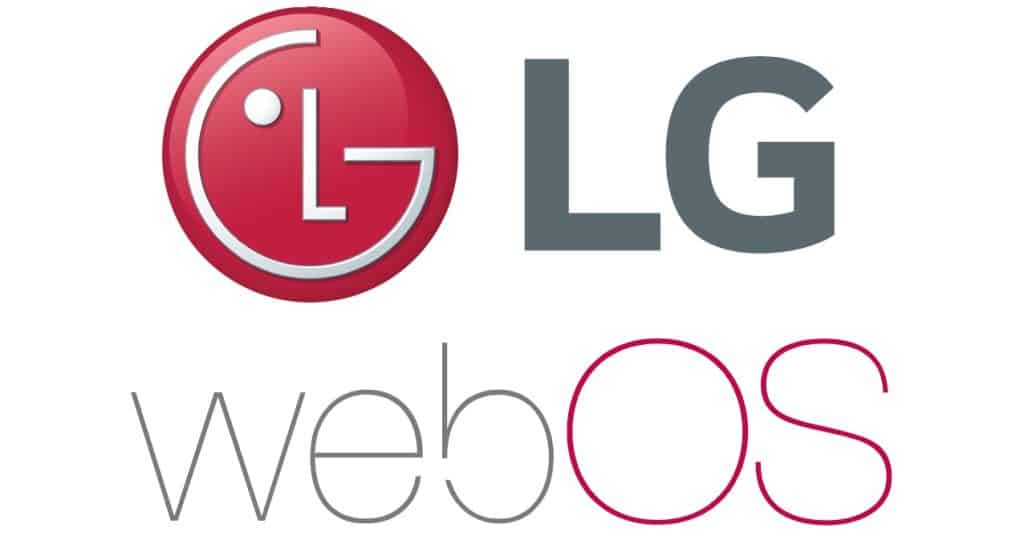
| OS Features | LG BX | LG CX |
|---|---|---|
| OS Version | WebOS (5.0 Version) | WebOS (5.0 Version) |
| Time to Change Backlight | 7 seconds | 7 seconds |
| Time to Load YouTube | 2 seconds | 2 seconds |
| HDR Netflix/Youtube | Yes | Yes |
| App Selection/Variety | 9/10 | 9/10 |
| App Smoothness | 6.5/10 | 6.5/10 |
| Ease of Use | 8/10 | 8/10 |
Like all other high-end LG TVs, the BX and CX use the same Magic Remote. It works both as a classic remote and a point-and-press tool. It’s fairly large compared to other smart TV remotes, so it offers a good selection of shortcuts and control options. This includes quick access buttons to Netflix and Amazon Prime Video. The app selection is great, and the TVs also allow you to cast content from other devices.
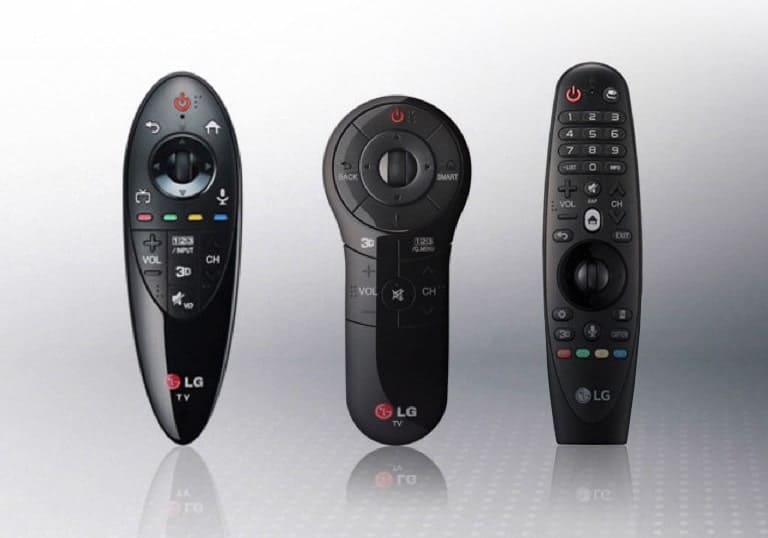
Connectivity
Apart from picture and sound quality, more experienced TV enthusiasts also pay careful attention to connectivity features such as wireless technologies, voice assistants, and the number of inputs and their layout.
In these major categories, the BX and the CX share many identical features. Nonetheless, there are some slight differences between the two you should know of when choosing. We’ll highlight each when comparing the two TV’s connectivity characteristics.
Inputs
Both the BX and the CX offer equally great input characteristics and provide users with excellent diversity in terms of external connectivity features. You can count on a good balance of input options no matter which of the two TVs you opt for. This is because they come with a corresponding number of inputs, as illustrated in the table below:
| Input Ports | LG BX | LG CX |
|---|---|---|
| HDMI Ports | 4 HDMI 2.0 Ports | 4 HDMI 2.0 Ports |
| USB Ports | 3 USB 2.0 Ports | 3 USB 2.0 Ports |
| Digital Optical Audio Out | 1 Port | 1 Port |
| Ethernet Port | Yes | Yes |
As you can see from the table above, all four HDMI ports on both TVs support 2.0 bandwidth. However, what’s interesting about the CX is that all of its 2.0 HDMI ports are also compatible with 2.1 class bandwidth. In contrast, the BX only supports this technology on its third and fourth HDMI ports. Additionally, neither the BX nor the CX support the USB 3.0 standard.
Voice Assistants
LG’s Magic Remote comes with built-in voice control that allows you to control a variety of aspects. For example, you can change input options, search for content, and even navigate within some apps. Lastly, you can ask your remote to show you the exact time or weather in your location. Overall, it serves as a very reliable voice assistant that makes TV use more streamlined and convenient.
Wireless Technologies
Wireless technology is an absolute necessity in all current generation TVs. In this regard, the two TVs fully support the latest Wi-Fi technology. More precisely, the BX and the CX come with the same Wi-Fi support (2.4 GHz and 5 GHz).
Both TVs also include Bluetooth and are Bluetooth Surround Ready. This means that you can quickly connect your headphones or up to two Bluetooth speakers for a true surround sound experience.
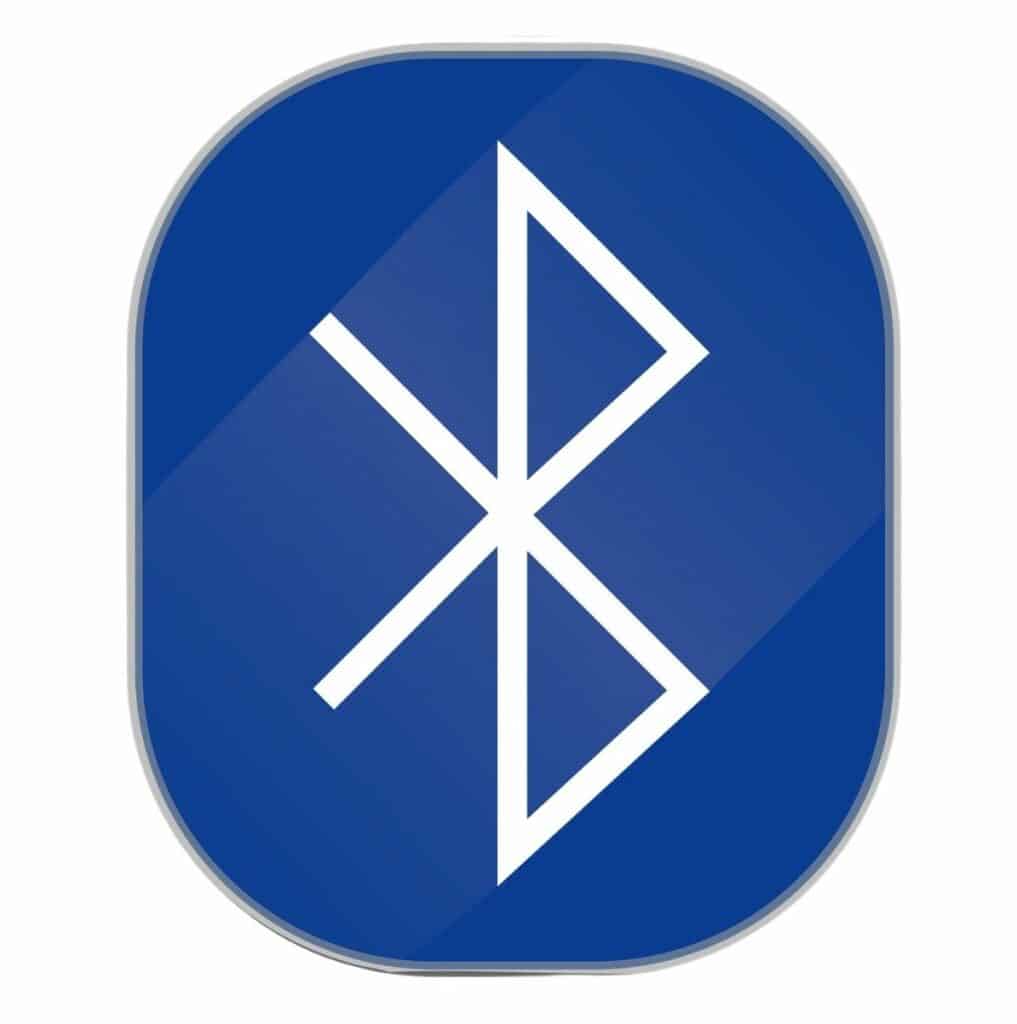
Standout Features
Both TVs come with a set of standout features that place them on the list of the best gaming TVs you can get. The two TVs support both FreeSync (Radeon graphics cards) and G-Sync (NVIDIA graphics cards) technology.
This makes them great performers for all major gaming platforms, especially for PC gaming enthusiasts. Moreover, the BX and the CX come with VRR support, meaning that they can offer excellent refresh rates regardless of which supported resolution you’re running.
Conclusion
The BX is a superb all-around OLED TV. It’s great for movies and gaming and offers above-average performance for watching sports and TV shows. Overall, if you’re looking for an outstanding TV for mixed usage, the BX is a terrific choice.
In comparison, the CX is equally suitable for mixed usage but is a superior performer in some key areas. It has a more capable image processor, better motion technology, and offers higher sound quality. All things considered, the CX is the better TV overall.
Of course, looking at the price point, these better features also mean that the CX comes at a noticeably higher cost than what the BX goes for. Ultimately, both TVs have their pros and cons you should take into account. With that in mind, hopefully, this detailed LG BX vs CX comparison has helped you determine which TV is the better choice for you.